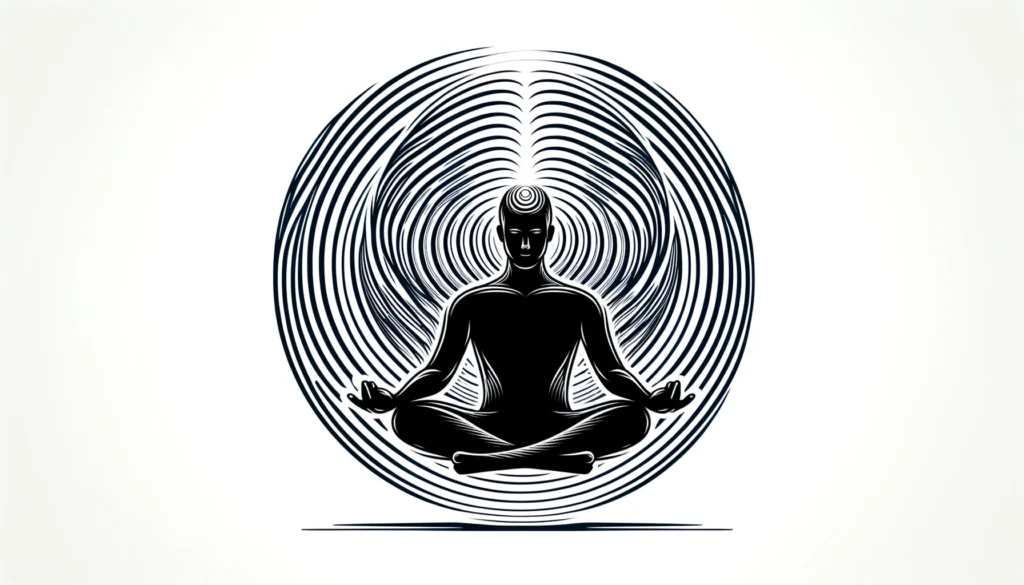Introduction to Advanced Meditation
Advanced meditation techniques delve into deeper levels of consciousness, offering profound insights and transformative experiences. Unlike basic practices focused on relaxation and mindfulness, advanced techniques require a strong foundation in meditation, discipline, and often, a guide or teacher to navigate these profound depths.
The Transition from Basic to Advanced
Moving from basic to advanced meditation isn't merely about increasing the time spent in silence. It involves a qualitative shift in how one engages with the practice. This transition is marked by a deeper understanding of the mind-body connection, an openness to explore the subtleties of one's inner landscape, and a commitment to confronting and integrating complex aspects of the self.
Key Differences
The primary distinctions between basic and advanced meditation lie in the practitioner's intent, the techniques employed, and the depth of introspection. Advanced practices often include:
- Focused Concentration: Sharpening the mind's focus to achieve states of deep absorption or samadhi.
- Expanded Awareness: Cultivating a broad, non-attached awareness that observes the transient nature of thoughts and sensations.
- Energy Work: Techniques like Kundalini or Qigong meditation that involve the activation and guidance of energy within the body.
- Contemplative Inquiry: Deep philosophical or existential questioning that leads to insights and spiritual awakening.
Examples of Advanced Techniques
Several advanced techniques offer pathways to deeper meditation:
- Vipassana: An intensive insight meditation that cultivates deep awareness of physical sensations and mental processes.
- Zen Koans: Paradoxical questions or statements used in Zen practice to transcend logical thinking and foster enlightenment.
- Transcendental Meditation: Using a mantra to dive beyond the surface level of the mind into profound stillness.
- Dzogchen: A Tibetan Buddhist practice aimed at realizing the natural, primordial state of being.
Mental and Physical Preparation
Preparing for advanced meditation involves both mental readiness and a conducive physical environment. Mentally, it requires letting go of expectations and cultivating patience and perseverance. Physically, creating a dedicated, quiet space and maintaining a comfortable posture enhance the depth of practice.
Benefits of Advanced Practice
Engaging in advanced meditation can lead to significant personal transformation. Benefits include profound inner peace, enhanced intuition, a deeper sense of connectedness with all beings, and, for some, experiences of spiritual awakening or enlightenment.

Focused Concentration
Focused concentration, or dharana in Sanskrit, is the practice of directing and sustaining attention on a single point of focus. This could be the breath, a mantra, a visual object, or even a concept. The goal is to cultivate a laser-like focus that can lead to deep states of meditation (dhyana) and ultimately, to samadhi, a state of complete absorption.
Practices and Techniques
- Trataka (Fixed Gaze): A form of concentration meditation where the practitioner focuses their gaze on a single point, often a candle flame, to improve concentration and mental clarity.
- Mantra Repetition: The mental or vocal repetition of a sacred sound or phrase to focus the mind and transcend ordinary consciousness.
- Chakra Meditation: Concentrating on the body's energy centers to balance and harmonize the flow of energy.
Expanded Awareness
Expanded awareness meditation techniques aim to cultivate a state of open, non-judgmental awareness of all aspects of the present moment. This involves observing thoughts, feelings, and sensations without attachment, allowing them to arise and pass away.
Practices and Techniques
- Mindfulness Meditation: Practicing moment-to-moment awareness of one's experience without judgment, often starting with the breath and expanding to other sensations.
- Open Monitoring Meditation: A technique where the meditator observes all aspects of their experience, both internal and external, without attachment or aversion.
Energy Work
Energy work in meditation involves techniques that activate and guide the body's subtle energies. These practices can lead to heightened states of consciousness and well-being.
Practices and Techniques
- Kundalini Yoga: Aims to awaken Kundalini energy at the base of the spine and guide it upward through the chakras.
- Qigong: A Chinese meditative practice that combines movement, breathing techniques, and focused intention to balance and enhance life energy.
Contemplative Inquiry
Contemplative inquiry involves deep, reflective questioning into the nature of existence, the self, and reality. It is often used in Zen and other meditative traditions to provoke insight and enlightenment.
Practices and Techniques
- Koan Practice: In Zen Buddhism, meditating on a koan (a paradoxical anecdote or riddle) to transcend logical thinking and trigger a deeper insight into the nature of reality.
- Self-Inquiry: Rooted in the Advaita Vedanta tradition, this involves questioning the nature of the 'I' or 'self' to realize the non-dual nature of reality.
Each of these advanced techniques offers a unique path for deepening one's meditation practice, leading to profound personal transformations and a deeper understanding of the self and the universe.
Navigating Challenges in Advanced Meditation
Common Obstacles
- Physical Discomfort: Longer periods of meditation can lead to physical discomfort or pain in the body.
- Mental Restlessness: Deeper meditation can surface unresolved thoughts and emotions, leading to restlessness or distraction.
- Spiritual Crisis: Intense meditation practices can sometimes trigger existential questions or doubts, often referred to as the "dark night of the soul" in spiritual circles.
Overcoming Obstacles
- Adapt Your Posture: Ensure comfort and stability in your meditation posture. Use cushions or chairs if needed to alleviate physical strain.
- Gentle Return to Focus: Acknowledge distractions without judgment and gently guide your focus back to your chosen meditation object or technique.
- Seek Guidance: For those experiencing profound spiritual challenges, seeking support from experienced teachers or spiritual counselors can provide valuable perspective and coping strategies.
- Incorporate Mindfulness: During daily activities, practice mindfulness to cultivate a steadier mind that can navigate the ups and downs of advanced practice more skillfully.
- Pace Yourself: Respect your own pace and allow your meditation practice to deepen naturally, without forcing progress.
The Transformative Impact of Advanced Meditation
Engaging in advanced meditation practices can lead to significant personal transformation. Practitioners often report:
- Deeper Inner Peace: A profound sense of calm and contentment that permeates everyday life.
- Enhanced Self-Awareness: Greater insight into one's thoughts, emotions, and behaviors, leading to more mindful living.
- Spiritual Awakening: Experiences of transcendence or enlightenment, where one feels a deep connection with the universe and a dissolution of the ego.
- Increased Compassion: As self-understanding deepens, so does empathy and compassion for others, fostering a sense of interconnectedness.
Advanced meditation practices offer a path to profound personal growth and spiritual exploration. While the journey inward may present challenges, the potential for transformation and awakening makes the journey invaluable.


